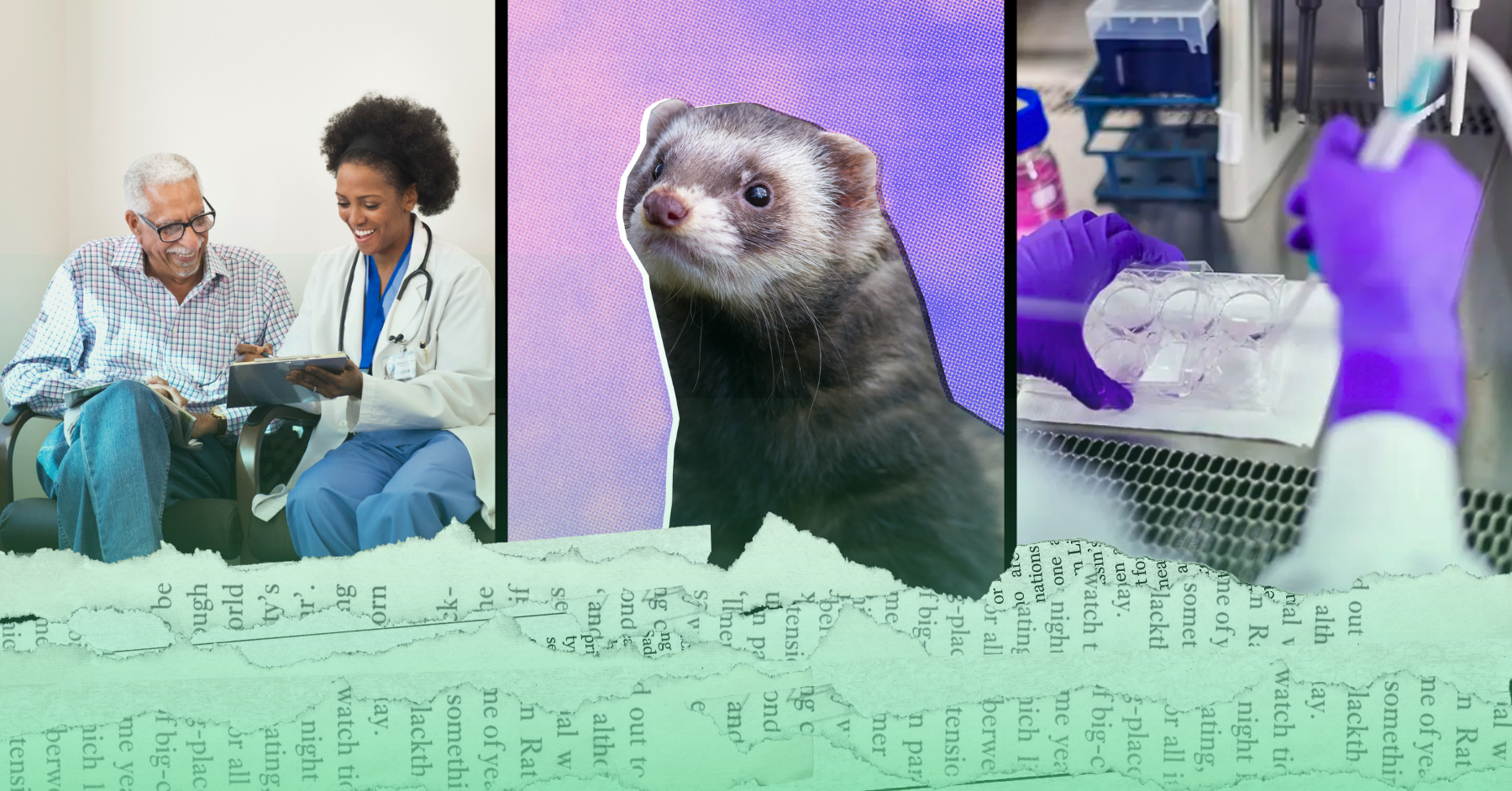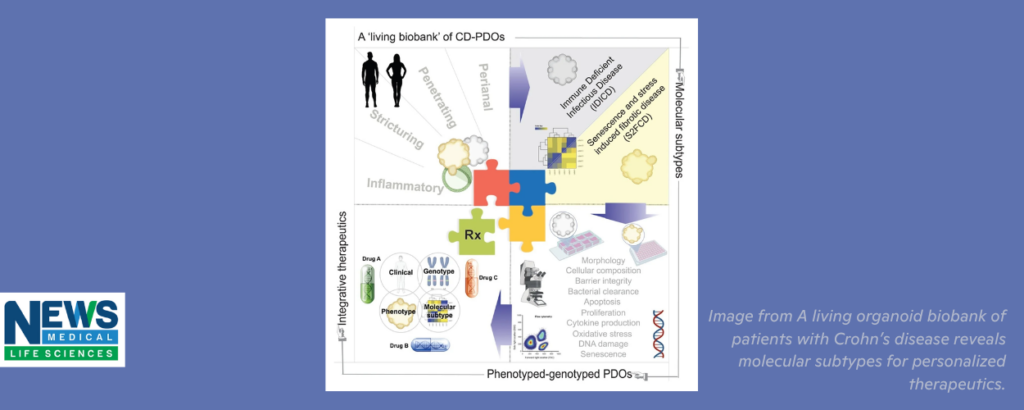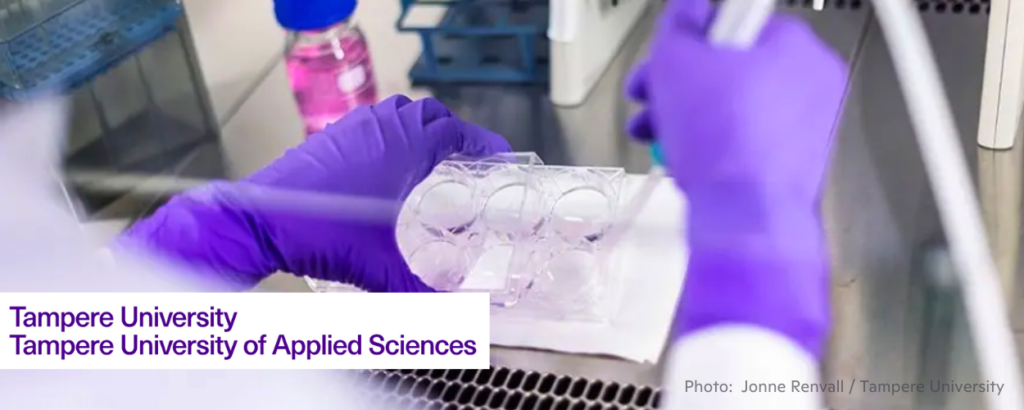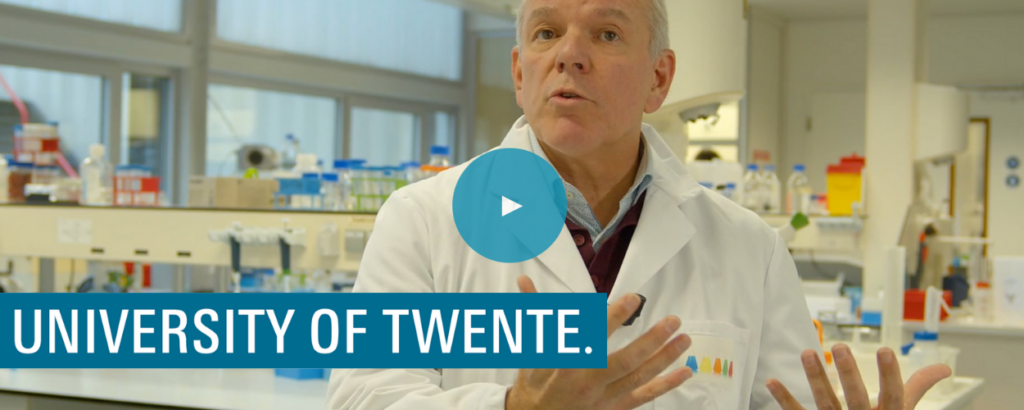
While the animal research industry continues to breed, buy, cage, torture, and kill sentient beings, progressive scientists are busy proving that human-relevant science is not only possible but, in fact, better for us all. October 2024 highlights in science are below.

UT Health San Antonio Creates Innovative Organoid for Advancing Understanding of Pancreatic Cancer
Claire Kowalick, UT Health San Antonio, 10/1/2024
“By 2030, pancreatic cancer is expected to surpass colorectal cancer as the second-leading cause of cancer-related death in the United States.”
“A study by scientists at the University of Texas Health Science Center at San Antonio . . . provides one of the first models to study the progression of normal human pancreatic cells toward tumor cells. Illumination on this process could aid the development of early biomarkers and potential treatment targets for this deadly disease.”
“ . . . Wang’s model begins with normal human organ donor cells that are induced to become cancerous. A model of this early stage of tumorigenic development had previously never been conducted with human cells.” 📰 Full Story →

Scientists Uncover Two Crohn’s Disease Subtypes Using Lab-Grown Intestines, Offering Hope for Personalized Therapies
Pooja Toshniwal Paharia, News Medical Life Sciences, 10/2/2024
“Crohn’s disease (CD) is a long-lasting digestive illness with varying symptoms among different individuals . . . there is no cure. A significant challenge is the lack of a reliable preclinical model that replicates human disease complexity.…”
“In the present study, researchers developed patient-derived organoids (PDOs) and analyzed them at a molecular level to identify pathways underlying Crohn’s disease pathophysiology and develop effective therapeutics.”
“The organoids mimicked the actual disease conditions in the intestines of CD patients . . . The findings also showcase the utility of PDOs in studying patient-specific responses to therapies and identifying genes and drugs that could improve CD diagnosis and management.” 📰 Full Story →

Human-Based Intestinal Organ Chip Research Opens the Door for Disease Modelling and Personalized Medicine
PCRM, 10/11/2024
“Organ chip models of the human intestine interfaced with other tissues have promising potential for personalized medicine and drug development.”
“Human intestine organ chips more faithfully model the structure of the human intestine than animals and provide researchers the ability to control important parameters . . . This technology is being used in many applications, including to model intestinal infections, colorectal cancer, and Crohn’s disease and to test for safe and effective therapies for these and other intestinal conditions.” 📰 Full Story →

No More Animal Testing – FHAIVE Uses Data-Driven Methods to Improve Chemical Safety and Drug Efficacy
Tampere University, 10/16/2024
“A research group at Tampere University is conducting cutting-edge research in the fields of toxicology and bioinformatics. The group wants to harness artificial intelligence to help companies develop more effective medicines and safer chemicals.”
“Traditionally, the safety of chemicals is tested using animal experiments, which are not only time-consuming and expensive, but also ethically challenging. In addition, they can be scientifically inaccurate. ‘People are not mice. Things we learn in animal models may not reliably predict what happens in humans. That’s why we need better methods for testing chemicals,’….” 📰 Full Story →

New Methods Boost Omics Data Analysis, Drug Prediction
Mirage, 10/22/2024
“Recent advancements in high-throughput sequencing technologies have enabled researchers to harness valuable omics data, paving the way for precision medicine. This approach aims to enhance diagnosis and treatment by tailoring therapies to individual patients, moving away from traditional, subjective methods.” 📰 Full Story →

Human Midbrain Organoids: A Promising Tool in the Fight Against Parkinson’s Disease
Vijay Kumar Malesu, News Medical Life Sciences, 10/23/2024
“[Parkinson’s Disease (PD)] is a common neurodegenerative disorder affecting over 6.1 million people globally . . . Further research is needed to develop better human-relevant models to understand PD mechanisms and improve treatment options.”
“Brain organoids have become instrumental in studying neurodevelopment and recapitulating human diseases, such as PD . . . These organoids replicate key features of PD….”
“ . . . the emergence of organoids has provided a more advanced platform for studying PD, offering new opportunities for simulating disease progression, drug screening, and therapeutic intervention.” 📰 Full Story →

‘Human mini-brains’ reveal autism biology and potential treatments.
Scripps Research Institute, 10/23/2024
“Using stem cells generated from patients with a rare and severe form of autism spectrum disorder and intellectual disability, Scripps Research scientists have grown personalized ‘mini-brains’ (or organoids) to study the disorder in new detail.”
“The lab-grown organoids allowed the team to gain a new understanding of how one genetic mutation leads to autism spectrum disorder.” 📰 Full Story →

How Mini Hearts-on-Chips Can Save Millions
University of Twente, 10/31/2024
“Every year, cardiovascular disease impacts over 126 million people worldwide . . . However, current animal and test-tube models often fall short in predictive accuracy.”
“Prof. Dr. Robert Passier is at the forefront of this research, combining advancing technologies to create innovative human heart models that function like real human hearts. This groundbreaking invention could lead to safer medications and reduced reliance on animal testing in research.” 📰 Full Story →

Scientists Discover New Cause and Potential Treatment Target for Huntington’s Disease
Rebecca Shavit, Brighter Side of News, 10/31/2024
“Researchers have identified a groundbreaking link between the CHCHD2 gene and Huntington’s disease (HD), a genetic neurodegenerative disorder. For the first time, this gene has been implicated as a factor in HD and offers a potential target for treatment.”
“This new study . . . combined the efforts from six different labs”, which “harnessed their expertise in Huntington’s disease, brain organoids, and gene editing to investigate the disease’s roots.”
“A key tool in this research was the use of brain organoids, three-dimensional structures grown from stem cells that mimic human brain tissue. These organoids provide an unparalleled look at cell interactions, giving researchers a model to understand diseases in ways previously unachievable in laboratory settings. As organoids can be created from various tissues depending on the research question, they serve as an ideal model for investigating neurological disorders like [Huntington’s Disease].” 📰 Full Story →